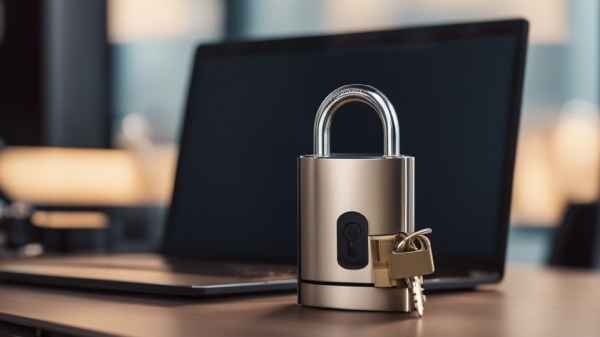
For anyone running an office network, the time when you could trust your office staff not to do anything dangerous on their computers is long past. Every office should have a corporate policy, letting staffers know what they may and may not do on your computers. Yes, yours. Not theirs. The business that bought the computers owns them, and has to pay for repairs and system cleanups, and so has to set clear guidelines. What follows should only be the starting point for your own office computer policy.
Some items should be added to this policy, including 1) a printing policy for personal use of the office printers, describing reasonable personal use, 2) what kinds of information may or may not be sent out of the office by email, on CD, or by any other means, 3) what kinds of information are considered to be financial assets or competitive information that must be protected, and 4) where to store business data and electronic documents of various types.
Computer Policy–Our Office
The rules below help control the cost of providing a computer for your work, by allowing a system administrator to know when a computer has been updated, and when it needs a new backup created, and when it is in need of a repair. Problems caused by employees ignoring these rules cost money, and that comes out of the computer budget, which will mean that upgrades to faster and better equipment are less likely to happen. Violations of these rules may result in disciplinary action, including termination. If in doubt, ask.
1. Computers provided in the office are paid for by the company, and provided for company work. They are intended for no other purpose. While the company can be reasonably understanding if an employee needs to research information for personal use during lunch, absolutely no installation of software or changes in system settings will be tolerated for any use. This includes, but is not limited to: screensavers, games, utility programs, and all other products, especially free products, that require installation.
2. If you need additional software installed that is already available on other workstations in the office, ask your system administrator if the software can be added to your workstation. If you need software that is not already in the office, but for which you already have the software license and CD, ask your system administrator to approve the license and install the software. If in doubt, see rule #1.
3. Do not use your corporate email address for personal use. When you leave us, we will not forward your mail, but will arbitrarily decide to read or trash what arrives. All mail on company computers is the property of the company, and there is no expectation of privacy, and mail may be read or deleted at any time by management or technicians or coworkers working temporarily with your clients or contacts.
4. Employees who need to access personal email from work may use their personal devices. Accessing personal mail through company computers results in leaving behind copies of mail, pictures, and personal information on company computers. The company doesn’t provide protection or privacy for any unauthorized use of company technology.
5. Changing system security settings to allow online games or any other online system to run is not allowed. If necessary for a business purpose, ask your system administrator. The computers were set up as they are for good reasons, and they were backed up after being set up. If you make a change, it can and will be wiped out arbitrarily by the system administrator during normal maintenance; don’t expect anyone to inventory your changes to the system, or maintain them, or to back up data from unapproved software.
6. Don’t open attachments to email that you did not specifically request from a known business contact. Viruses and worms and other damaging malware generally arrive with false return addresses, stolen from an infected computer, one which usually uses some other email address than those that appear on the email. Never trust email to be safe, even if it appears to come from someone you know. Don’t rely on antivirus software to work–it can take several days for the antivirus software running on your workstation to be updated to include the newest dangerous software, and worms will frequently spread faster than the updates to the antivirus software. Again, never trust email.
7. While visiting internet sites, note that many, many common misspellings of popular web sites have been set up by unscrupulous companies trying to get business, mostly for advertising, and these sites will attempt to install software on your workstation. Do not allow the installation to proceed. Always read the prompt carefully: some may say “Do you want to install …” and others may say “Do you want to stop installing…” The answers that mean “STOP” are not the same. When in doubt, ask for help. Like email, web pages and any software associated with them must never be trusted unless you know the source, either personally, or by reference from a known and trusted reviewer or certification group.
8. Passwords and logins for programs must not be available to visitors at your desk. That means no sticky notes on your monitor listing user names, no scribbles on the desk pad or bulletin board, and no handy list in your top desk drawer. Passwords must be kept secure. Unauthorized use of passwords will result in accounts being turned off.
9. Read your screen before calling for help. Most software messages have a help button. Click on it, and read about what you’re doing before deciding that you’re unable to cope with an error message.
10. Store office data where you’ve been shown it belongs. That is on the network, by project or by topic. It’s not on your desktop, not in the ‘my docs’ folder on your workstation, or in any other creative location. The network data drive is properly backed up on a schedule. Your workstation is backed up infrequently, and that’s just to save labor in case of a hardware failure.

